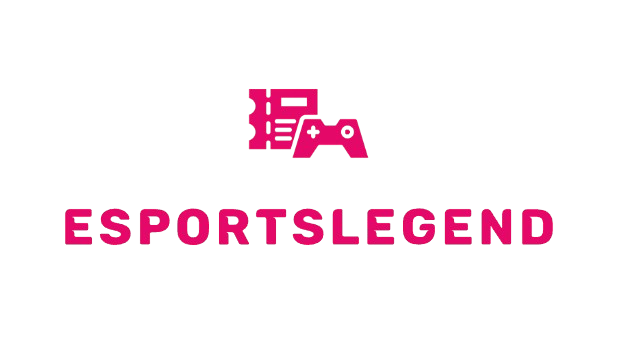In a world where gaming is no longer just a pastime but a way of life, the rise of Web3 game development companies is turning heads faster than a gamer spotting a rare loot drop. These innovative studios are crafting immersive experiences that blend blockchain technology with the thrill of gaming, creating a playground where players truly own their virtual assets.
Web3 Game Development Company
Web3 game development represents a pivotal shift in the gaming industry, integrating decentralized technology into gaming experiences. This transformation empowers players through ownership of digital assets.
What Is Web3?
Web3 refers to the next evolution of the internet, focused on decentralization and user empowerment. Built on blockchain technology, it allows users to interact directly without intermediaries. This paradigm fosters trust and transparency. Key components include smart contracts, cryptocurrencies, and decentralized applications (dApps). These elements create ecosystems where players can own, trade, and monetize their in-game assets securely. Thus, Web3 signifies a more player-centric approach, where individuals control their gaming experiences.
Characteristics of Web3 Games
Web3 games exhibit several defining features that differentiate them from traditional gaming. First, true ownership of in-game assets becomes a reality, allowing players to buy, sell, and trade items freely. Second, play-to-earn models generate income for players, incentivizing engagement. Third, community governance empowers players to influence game development through voting and participation. Additionally, interoperability between games enables players to use their assets across multiple platforms. This interconnectedness enhances player experience and fosters a vibrant gaming ecosystem. As a result, Web3 games offer innovative experiences that promote player investment and participation.
Benefits of Hiring a Web3 Game Development Company

Hiring a Web3 game development company offers distinct advantages that enhance the gaming experience and leverage blockchain technology effectively. One of the primary benefits lies in their expertise in creating decentralized environments.
Enhanced User Ownership
Users gain true ownership of in-game assets when collaborating with a Web3 game development company. Assets such as skins, characters, and items reside on the blockchain, allowing players to trade or sell them independently. Players benefit from secure transactions and transparent ownership records backed by smart contracts. This level of ownership builds trust and increases player engagement, making gaming experiences more rewarding. Players enjoy more significant connections with their assets, leading to increased loyalty to developers who prioritize transparency.
Innovative Monetization Models
Innovative monetization models emerge through the expertise of Web3 game development companies. The rise of play-to-earn models enables players to earn cryptocurrency or token rewards for their in-game activities. Companies also create unique NFT-based economies that enhance player investment. Revenue streams diversify beyond traditional sales, opening possibilities for subscription-based services or secondary marketplaces. New monetization strategies align with player interests and allow developers to create sustainable ecosystems that benefit both players and creators. By utilizing these models, companies attract a broader audience and foster ongoing engagement.
Choosing the Right Web3 Game Development Company
Selecting a Web3 game development company requires careful consideration of various factors. Expertise, industry experience, and technical skills significantly influence the success of the project.
Key Factors to Consider
Experience in blockchain technology stands out as a critical factor. Companies that have successfully launched Web3 games demonstrate their capability to navigate complexities. Portfolio diversity shows a studio’s adaptability and creativity in fulfilling different gaming concepts. Focus on community engagement highlights a developer’s commitment to building an interactive environment for players. Understanding of regulations around cryptocurrencies ensures compliance and future-proofing of the game.
Questions to Ask Potential Partners
Inquiring about the development team’s experience with blockchain projects reveals insights into their effectiveness. What methodologies do they employ for game design? This question helps assess their creative process. Asking for examples of successful projects allows evaluation of their previous achievements. Understanding their approach to community building provides clarity on how they plan to engage players. What support and maintenance services do they offer post-launch? This ensures ongoing collaboration and trouble-free operations.
Case Studies of Successful Web3 Games
Numerous Web3 games have achieved substantial success, showcasing the potential of blockchain technology in the gaming industry. These examples highlight innovative designs, community engagement, and unique monetization models.
Notable Titles and Their Impact
Axie Infinity stands out as a pioneer in the play-to-earn model, allowing players to earn cryptocurrency while battling and breeding digital creatures. This game popularized blockchain gaming, attracting millions of active users. Another noteworthy title, Decentraland, provides a virtual world where players can buy, sell, and develop land using NFTs. This platform exemplifies true ownership and creative expression in the digital space. Additionally, The Sandbox fosters user-generated content, empowering creators to design their own experiences and monetize them through the platform’s economy.
Lessons Learned from Success Stories
Successful Web3 games emphasize the importance of community-driven development. Engaging players in decision-making fosters loyalty and enhances user experience. Axie Infinity’s success stemmed from its robust community that influences game features and development priorities. Transparency plays a crucial role in these games. Building trust between developers and users ensures a sustainable environment. Furthermore, adaptive monetization strategies prevent player attrition and keep engagement levels high. By incorporating player feedback and evolving mechanics, these games maintain relevance in the competitive landscape.
Future Trends in Web3 Game Development
Web3 game development continues to evolve rapidly, shaping the future of the gaming industry through innovative technologies and approaches.
Emerging Technologies to Watch
Blockchain interoperability stands out as a significant trend, allowing seamless interaction between different platforms. Decentralized finance (DeFi) integration enhances gaming experiences by enabling players to finance in-game activities. Artificial intelligence (AI) also plays a crucial role, offering personalized gaming experiences and dynamic content generation. Additionally, non-fungible tokens (NFTs) create unique digital assets, driving ownership and value in virtual environments. Players can authenticate items, increasing demand within the gaming economy. Interaction through virtual reality (VR) and augmented reality (AR) introduces immersive experiences, engaging players more effectively.
Predictions for the Industry
The Web3 gaming landscape will likely experience increasing player empowerment through enhanced ownership and governance models. Players may participate in decision-making processes, shaping game development directly. Monetization strategies are set to diversify further, moving beyond traditional models to include play-to-earn opportunities. Game developers will prioritize sustainable ecosystems that foster long-term engagement. The rise of community-driven initiatives will enhance collaboration between players and developers. With technological advancements, the potential for mainstream adoption grows, leading to an expanding market presence. Competition will ignite as more companies enter, driving innovation and creativity within the industry.
Conclusion
The rise of Web3 game development companies is reshaping the gaming industry in profound ways. By leveraging blockchain technology these studios empower players with true ownership of their digital assets and foster innovative monetization models. As the landscape continues to evolve the focus on community engagement and sustainable ecosystems will play a crucial role in shaping the future of gaming.
Choosing the right Web3 game development partner is essential for success. Their expertise in blockchain and understanding of player needs will ensure a thriving gaming experience. With exciting trends on the horizon including AI and immersive technologies the potential for Web3 gaming is limitless. Embracing this new era will not only enhance player engagement but also redefine what it means to be a gamer in a decentralized world.




